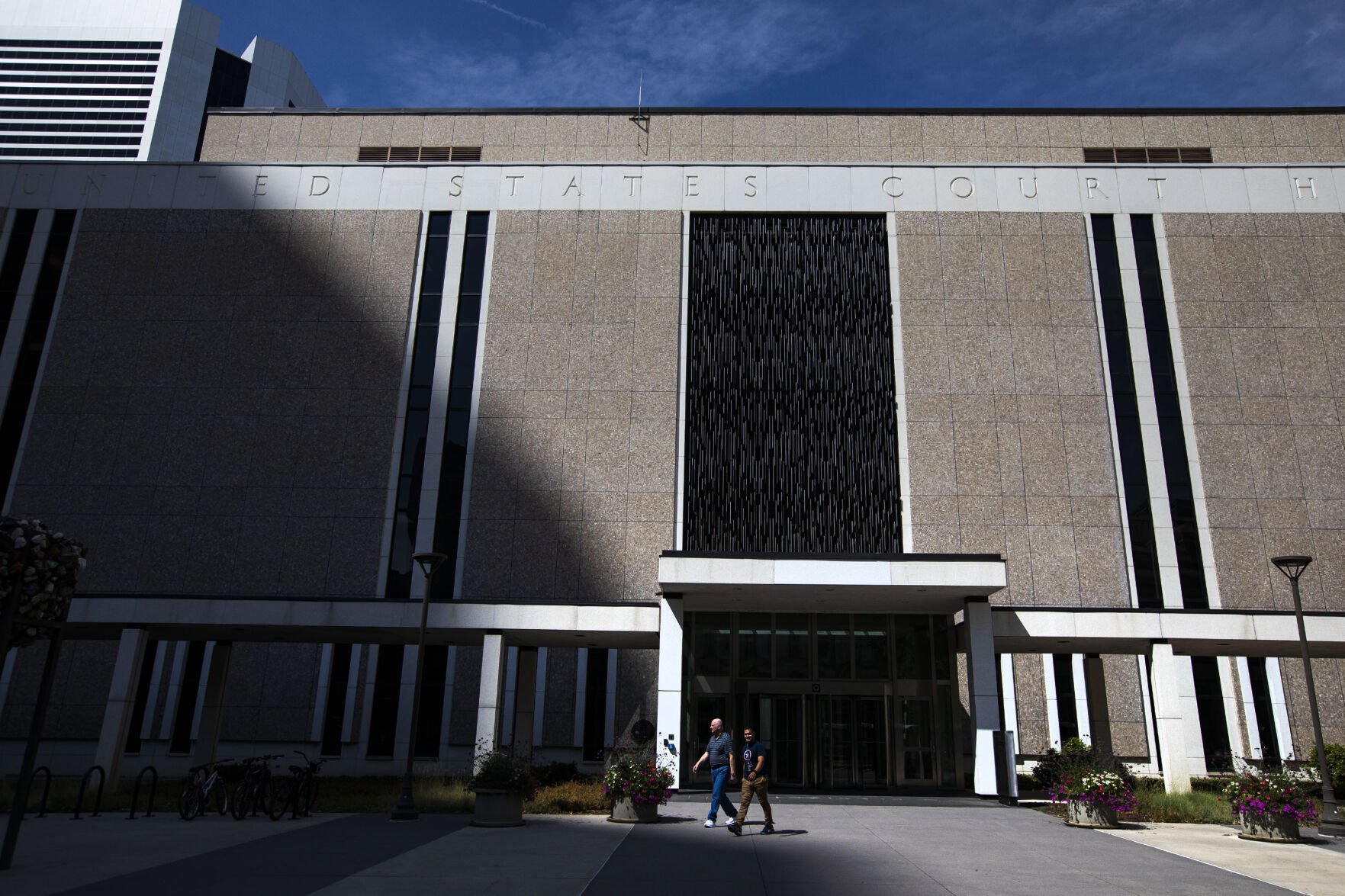Federal judge allows excessive force claim to proceed against Westminster officers

A federal judge on Tuesday permitted an excessive force claim to proceed against Westminster police officers who allegedly knocked a man unconscious and continued to beat him after he posed no threat.
However, U.S. District Court Judge S. Kato Crews based his ruling on the allegations in Jonathan David Smith’s complaint, which did not include evidence suggesting the officers were responding to Smith’s active resistance with a firearm.
Smith is serving a 16-year prison sentence after pleading guilty to attempted assault on a peace officer with a deadly weapon.
Smith alleged in his lawsuit that he called police to report a suspected theft from his home in May 2018. Officers Russell Arnold and Thomas Thwaits later arrived wearing tactical gear. Smith placed a handgun in his back pocket for protection and cracked open the door.
Allegedly, the officers could not see the gun. They told Smith, incorrectly, he could not be in the home due to the terms of a restraining order. They asked Smith to come outside, but Smith said he would not do so without a search or arrest warrant. He then shut the door.
The officers proceeded to “kick down” the door, hitting Smith in the head and knocking him unconscious.
“Plaintiff was lying on the floor, unconscious, unresponsive to the officers’ continued beating — yet, Officers Arnold and Thwaits did not stop kicking and beating Plaintiff,” his lawyers wrote.
Smith’s minor daughter allegedly witnessed the officers hitting her father. Smith later woke up from a coma at Denver Health, where he sustained facial fractures, a broken nose and two broken cheekbones.
After he posted about the encounter on Facebook, Westminster police arrested Smith for attempted murder and assault with a deadly weapon. He pleaded guilty to attempted assault.
Smith then filed suit against Arnold and Thwaits for excessive force and unlawful entry into his home. He also alleged the city’s policies were a factor behind his constitutional violations.
Originally, representing himself from prison, Smith attached incident reports from Arnold and Thwaits describing their perspective of the encounter. They both indicated Smith was actively resisting inside his home and holding onto his gun. They admitted to delivering “several punches to his face” and using “hammer fists” and “elbow strikes” to Smith’s head. In their telling, Smith was never knocked unconscious.
However, in his subsequent complaint, filed with the assistance of pro bono attorneys, Smith did not include the officers’ statements.
The defendants moved to dismiss Smith’s claim of excessive force. They argued it was not viable because of a U.S. Supreme Court case, Heck v. Humphrey. There, the Supreme Court decided plaintiffs cannot prevail in a lawsuit if it would necessarily invalidate a criminal conviction.
“Plaintiff’s version of events is inconsistent with his subsequent conviction,” wrote the defendants’ attorneys, arguing Smith’s guilty plea for attempted assault with a deadly weapon necessarily justified the officers’ use of force.
However, in ruling from his courtroom, Crews noted Smith’s complaint did not describe how Smith attempted to assault the officers, nor were there any records from state court illuminating the circumstances of his guilty plea. Instead, the lawsuit characterized the unconstitutional beating as occurring after Smith was no longer conscious.
“Any attempt to assault the officers would have ceased at the moment he was knocked unconscious,” Crews said, but “the defendants continued to beat him while he was unconscious. Thus, Heck does not apply.”
At the same time, Crews agreed to dismiss the allegations that Westminster itself played a role in violating Smith’s constitutional rights. He also dismissed the claims Smith brought under a 2020 state law enabling people to sue police officers for violating their rights under the Colorado Constitution. Crews explained Smith’s encounter in May 2018 fell outside the two-year statute of limitations.
The defendants did not seek to dismiss Smith’s claim of unlawful entry.
The case is Smith v. The City of Westminster et al.












